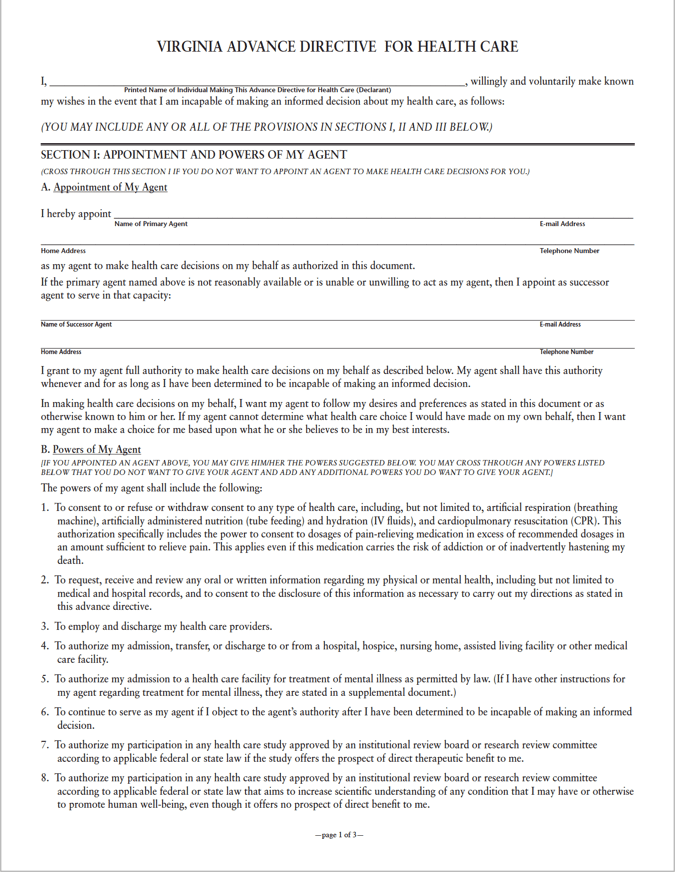Virginia Advance Directive for Health Care Form
A Virginia advance directive for health care allows a person (the declarant) to inform a physician of medical treatment for another person (the principal). Since this document combines a living will and medical power of attorney, it enables the principal to make their own health care decisions. If the principal has not listed instructions for a medical situation, the declarant must use their best judgment to choose for them.
The principal can choose a successor agent who replaces the primary agent if they cannot fulfill their role. When filling out this form, the principal should ensure that they provide details about treatment and choose suitable agents as they cannot edit it later. Instead, they would have to complete a new advance directive. As soon as the principal creates a new advance directive, the former one immediately terminates.
The principal can use this form to include whether or not they want life-prolonging treatment. This type of care includes artificial nutrition and hydration (i.e., tube feeding or intravenous), cardiopulmonary resuscitation (CPR), a breathing machine, dialysis, antibiotics, and pain relief. They can also choose to gift their whole body or body parts (such as their eyes, organs, and tissues) to research, transplantation, therapy, or education. If the principal does not provide this information in the advance directive, the agent must decide for them.
Unless the form states otherwise, the agent can do the following on the principal’s behalf:
- Approve or deny medical treatment of any kind;
- Review and discuss medical records or history;
- Hire or fire health care team;
- Choose health care facility (e.g., hospital, assisted living, hospice, mental health facility, etc.);
- Remain the agent even if the principal (once incapacitated) wants a different agent;
- Enter the principal into a research study if it benefits them or increases scientific understanding of health condition;
- Determine visitation hours and rules; and/or
- Grant liability releases (if needed).
Laws: § 54.1-29-8
Signing requirements (§ 54.1-2983): Two witnesses are required.
